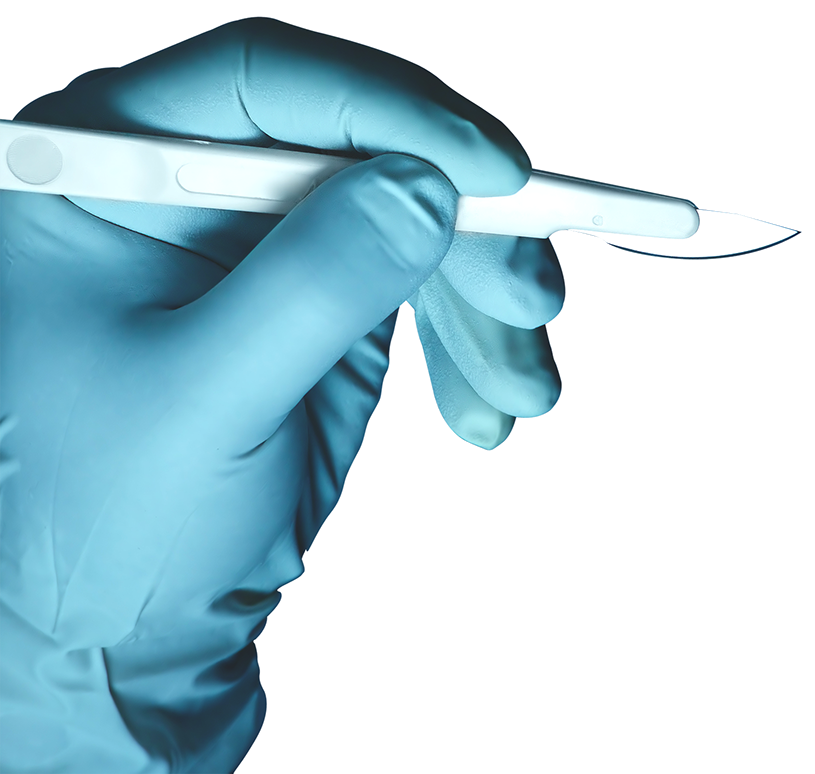
Our mission is to represent the plastic surgeons who are board-certified by the American Board of Plastic Surgery (a member of the American Board of Medical Specialties) and to provide our members with professional services in Continuing Medical Education, Research & Scientific Affairs, Practice Management, Advocacy for the specialty with the Federal Government and State Legislatures and regulatory authorities and to educate the public on the importance of choosing an ASPS Member Surgeon.
The American Society of Plastic Surgeons (ASPS) is the largest plastic surgery specialty organization in the world. Founded in 1931, the Society is composed of more than 7,000 physician members and represents more than 94 percent of all board-certified plastic surgeons in the United States who perform cosmetic and reconstructive surgery.

Founded in 1948, The Plastic Surgery Foundation (The PSF) works on behalf of the specialty to guide future innovation and organizational collaboration. Our goal is to guide the latest breakthroughs in plastic surgery research and develop guidelines for plastic surgeons in order to promote the highest clinical outcomes and patient safety.
The PSF is a world leader in research, championing initiatives that have a significant impact on clinical practice. We also work to educate and cultivate the pipeline of surgeon scientists to assure that ASPS members will spearhead research and medical innovation now and for years to come.

» International Scholars
» Leadership & Finance Report
» Patients of Courage
PRESIDENT
SCOT B. GLASBERG, MD, FACS
When initially reading a year-end annual report, one expects to find mounds of financial reporting and accounting. Within this document, you will indeed find much financial information showing that both the American Society of Plastic Surgeons and the Plastic Surgery Foundation are on firm and solid footing with a bright future ahead. However, when one assumes the role of president of such a prestigious organization, the term is predicated on a strong vision and strategic goals. It was with this in mind that I entered my presidential term.
In the months preceding my presidency, I declared it to be the “Year of the Member” and proceeded to hold webinars and conference calls with every constituency within the Society. Each and every member had an opportunity to express concerns, raise issues or ask questions prior to the start of my tenure. With these comments as its chore, our executive committee was able to firmly start the year running with great initiative and determination.
One of my first priorities was to improve the Society’s relationships with other plastic surgery organizations, especially the American Society for Aesthetic Plastic Surgery. To this end the leadership of ASPS and ASAPS held a historic meeting during the ASPS Winter Board Meetings in March 2015 and issued a joint statement to the membership heralding a new era of cooperation. While the road forward from there has not been without some small detours, the new era that began in 2015 continues at the time of this writing.
As we were improving collaboration within our own specialty, it was just as important to begin reaching out to professional organizations in other core specialties. With this in mind, we undertook in-depth discussions with other like-minded organizations such as the American Academy of Facial Plastic and Reconstructive Surgery, the American Society of Breast Surgeons and even the American Academy of Dermatology. Each of these conversations and meetings yielded fruitful ways to work together through relationships and coalitions that could and would benefit each of our members. Previous boundaries were broken down and efforts and endeavors were begun to enhance the specialty of plastic surgery for its members and in the eyes of the public. Common initiatives were found in the areas of surgeon education, public education, patient safety and advocacy.
This year was also an extremely expansive one on the global front. ASPS continued to expand its international membership and collaborative efforts with multiple international societies through our MOU initiatives. In addition, and perhaps most importantly, ASPS and the International Society of Plastic and Regenerative Surgeons (ISPRES) forged an affiliation agreement that will be mutually beneficial into the future. ASPS will assist with the administrative and structural areas of ISPRES to allow its leaders to focus on their true passions of education and research in the field of regenerative medicine. Finally, in response to the challenges faced by the International Confederation of Plastic Reconstructive and Aesthetic Surgery during the recent past, ASPS engaged in extensive discussions with at least 40 other international plastic surgery societies to help form a new global organization to represent the specialty. ICOPLAST has a bright future indeed for the benefit of all the plastic surgeons of the world.
The greatest regulatory challenge during my presidential year was in the arena of fat grafting. At the beginning of my term, the FDA released draft guidance documents that could have the potential to severely limit our members’ ability to perform fat grafting. A Regenerative Medicine Oversight Council was formed and spent countless hours providing responses to these documents, meeting with FDA officials and eventually providing testimony at FDA hearings. ASPS and PSF have also taken a proactive role in leading the collection of data key to verifying the safety of fat grafting procedures through the launch of the GRAFT Registry. I am hopeful that all of these efforts will allow our members to continue to perform these vitally important procedures for the benefit of their patients in the safest environment possible and to provide the regulatory agencies and public with real-time data regarding their outcomes.
In 2015, ASPS launched and presented the incredibly successful inaugural Aesthetica Super Symposium. The idea to create a multi-modular spring meeting had been taking shape for several years, and feedback from attendees and industry was phenomenal on all fronts.
One of my first efforts as president was to establish two vitally important task forces, a Private Practice Task Force and an Employed Plastic Surgeons Task Force. The goal was to attempt to address the unique needs of each of these groups of practicing plastic surgeons in an increasingly rigorous and difficult healthcare environment. I am pleased to report that these efforts are bearing tremendous fruit due to the efforts of those involved leaders, and member response has been so great that these task forces will be combined into a larger committee that will continue its work into the future.
In addition to these two task forces, a Professionalism Task Force was established as well. This workgroup was started as a result of some survey data and anecdotal stories, which showed that our specialty could benefit from a look into our strengths and weaknesses in this challenging area.
Given the ever-changing environment in health care and medicine in general, a tremendous effort was undertaken to rework the ASPS/PSF conflict of interest and disclosure policy. These Herculean efforts culminated in the passage of a new conflict of interest policy that can serve as an example for other medical and surgical specialty societies.
Serving as the President of the American Society of Plastic Surgeons has been the highlight of my professional career. I am humbled by the tremendous support and encouragement that I received from the society leadership, membership and staff. It was a pleasure to work so closely with The PSF President, Nicholas Vedder, M.D., and the rest of the Executive Committee and Board of Directors. The up-and-coming ASPS/PSF leadership is a group of enthusiastic and talented leaders and experts who will help take the Society to new heights and keep the future of ASPS glowing brightly. One final note about our incredible staff. These uniquely talented and diverse individuals serve as the backbone and foundation of all of the Society efforts on a daily basis. Without them, our society would crumble. To our executive leadership and staff, I raise a toast to the individuals to whom I and all of our members are hugely indebted.
THE PLASTIC SURGERY FOUNDATION
PRESIDENT
NICHOLAS B. VEDDER, MD, FACS
The Plastic Surgery Foundation (The PSF) continues to be a jewel for the specialty of plastic surgery. It is a perfect example of the life principle that the more you are willing to give, the more you will receive in the end. Unlike other surgical specialties that are based on an anatomic region or system of the human body, plastic surgery encompasses the entire human body and is instead defined by one principle: innovation. By continually watering the seeds of innovation through The PSF, we can ensure that they blossom long into the future.
Plastic surgeons develop creative solutions to medicine and surgery’s most challenging problems—literally from head to toe. Improving quality of life, reducing hospital stay, and allowing surgery to go where it could not have gone in the past are tremendously valuable to all of medicine. But demonstrating the value of what we do is a major challenge that we can only address with good data. In the new era we are entering of value-based payment instead of traditional-fee-for service, it will become increasingly important for plastic surgery to demonstrate its value to the larger integrated health care system. To this end, The PSF in recent years has placed great emphasis on supporting outcomes studies, including the development of patient-reported outcomes tools, clinical trials and practice-enabling clinical registries. This data will drive the future of our specialty.
The PSF welcomes donations and turns them into critical investments, including nearly $500,000 in PSF-initiated clinical studies and data registries in areas such as the safety and efficacy of fat grafting and our quality of life measurement studies. In addition, we have made substantial investments in the National Breast Implant Registry in collaboration with the Food and Drug Administration, perhaps the most impactful registry we have ever undertaken, and the PROFILE registry, which looks at the etiology and epidemiology of anaplastic large cell lymphoma’s association with breast implants. These are practice-enabling registries in which all plastic surgeons need to participate. Investment in quality data collection is imperative in creating the future of the clinical practice of plastic surgery.
Over the past year, the PSF invested over $1.2 million in clinically relevant plastic surgery research programs, with more than $650,000 going directly to investigator-initiated projects, including basic science and clinical research. In the basic science arena, PSF-funded research has led to important discoveries in areas that will define the future of the specialty. In addition, The PSF invested $150,000 to support research fellowships to train the next generation of plastic surgery research leaders.
Your donations have been the seed money for many of these investigators to develop larger studies funded by agencies such as the National Institutes of Health or the Department of Defense. This past year alone, recipients of these PSF startup grants have gone on to be awarded over $6 million in federally funded research grants – a 1,000 percent return on our initial investment in these researchers.
In the past year, The PSF also embraced its philanthropic side and given nearly $375,000 in charitable care grants through multiple avenues. Our new collaboration with Fresh Start Surgical Gifts of San Diego—the joint “Fresh Start Caring for Kids Foundation”—provides no-cost, life-changing reconstructive surgery from volunteer hospitals, clinics and board-certified plastic surgeons to children with congenital deformities and injuries in the United States.
The PSF also supports a number of public awareness efforts, such as the Breast Reconstruction Awareness Campaign and Fund, which strives to ensure that every breast cancer patient knows her reconstruction options. Our Breast Reconstruction Awareness Fund and Grant program provides charitable care grants for uninsured and underinsured women in underserved communities. Our public awareness grants raise awareness of breast reconstruction surgery options in the community, and our breast reconstruction research grants help advance the science.
The PSF has a simple mission: to improve the quality of patient care and create the future of the specialty through research and development. We need your investment.
AMERICAN SOCIETY OF PLASTIC SURGEONS
President
SCOT B. GLASBERG, MD
New York, NY
Judicial Council
MATTHEW CONCANNON, MD
Columbia, MO
President-Elect
DAVID H. SONG, MD, MBA
Chicago, IL
Judicial Council
JOSEPH DISA, MD
New York, NY
Trustee
MICHAEL NEUMEISTER, MD
Springfield, IL
Ethics | District 1 (Canada)
NICHOLAS CARR, MD
Vancouver, BC
Trustee
NORMAN RAPPAPORT, MD, DDS
Springfield, IL
Ethics | District 2 (California)
AMANDA GOSMAN, MD
San Diego, CA
Vice President of Finance
& Treasurer
RICHARD GRECO, MD
Savannah, GA
Vice President of Academic Affairs & Reconstructive Surgery
ARUN GOSAIN, MD
Chicago, IL
ACAPS Representative
JOSEPH LOSEE, MD
Pittsburgh, PA
PSRC Representative
BABAK MEHRARA, MD
New York, NY
Vice President of Education
JEFFREY E. JANIS, MD
Columbus, OH
Vice President of Private Practice & Aesthetic Surgery
ALAN MATARASSO, MD
New York, NY
ASMS Representative
ROBERT HAVLIK, MD
Milwaukee, WI
Vice President of Health
Policy & Advocacy
DEBRA JOHNSON, MD
Sacramento, CA
Member-at-Large
MICHELE SHERMAK, MD
Baltimore, MD
ASPN Representative
HOWARD CLARKE, MD, PHD
Toronto, CAN
Vice President of Research
PAUL CEDERNA, MD
Ann Arbor, MI
AAHS Representative
MICHAEL NEUMEISTER, MD
Springfield, IL
ASRM Representative
DAVID CHANG, MD
Chicago, IL
President
NICHOLAS B. VEDDER, MD
Seattle, WA
President-Elect
CHARLES BUTLER, MD
Houston TX
Gabriel Hurley
» New Jersey
Hurley, a recent Rutgers University graduate and a promising musician, suffered a horrific accident when the car he was driving was hit by a reckless driver. Gabriel suffered massive facial trauma, including panfacial fractures with bilateral globe ruptures. He underwent multiple reconstructive facial surgeries and had been rendered completely blind from his ocular injuries. Through relentless rehabilitation and numerous reconstructive procedures, Gabriel began to recover, never letting his facial disfigurement or his blindness take over his life.
Juliana James
» Washington State
Juliana, known as Lily to friends and family, nearly lost both of her feet in a boating accident when she was 7 years old. Lily’s right foot, which was attached only by tendons, was successfully replanted. After several additional surgeries and reconstructive flaps Lily was able to walk again and resume her favorite activities, including skiing, gymnastics and most recently, lacrosse.
Adam Keys
» Injured in Afghanistan
Army Sgt. Adam Keys, 31, was injured in Kandahar, Afghanistan, when an IED was detonated from a remote location. Adam, the only one to survive the explosion, lost both legs above the knee and his left arm due to infections. He spent the next several months at the Walter Reed National Military Medical Center, enduring more than 130 surgeries. Adam’s determination has been nothing short of amazing. Through extensive physical therapy, Adam walks without the use of a cane or crutches—he even competed in the Boston Marathon.
Suzanne Zaccone
» Illinois
Zaccone underwent a mastectomy and radiation as well as a delayed right breast reconstruction with a stacked DIEP/SIEA flap. After returning home from the hospital, Suzanne began to blog about her experience and eventually turned her posts into a book, “A Random Interruption: Surviving Breast Cancer with Laughter, Vodka, Smoothies and an Attitude,” published in 2009. Suzanne donated the book’s proceeds to The University of Chicago Plastic and Reconstructive Surgery, where she and her foundation have established the Zaccone Family Microsurgery Fellowship. Suzanne has given more than $600,000 to support the training of six fellows in advanced techniques in reconstructive microsurgery.
Arzu Akcal, MD, Msc, FEBOPRAS
Turkey | PSF Scholar
» Microvascular Free Flaps for Soft Tissue Reconstruction
» Pediatric Plastic Surgery
» Tissue Engineering
» Adipose Stem Cell Research
Ewa Anna Siolo, MD
South Africa | PSF Scholar
» Craniofacial Surgery
» Cleft Lip & Palate Surgery
» Fat Transfer
» Stem Cell Research
» Regenerative Medicine
Ma. Arlene C. Cala-or, MD
Philippines | PSF Scholar
» Craniofacial Surgery
» Breast Reconstruction
» Aesthetic & Body Contouring Surgery
» Wound Healing
Somashekar Gejje, MD
India | Achauer Scholar
» Microsurgery
» Cleft Lip & Palate
» Burn Reconstruction
» Hand Surgery
» Facial Fractures Management/Ortho Gnathic Surgery
Edward Charles Wayi, MD, M Med (Surg)
Tanzania | Smile Train Scholar
» Alveolar Cleft Surgical Repair
» Orthognatic Surgery
» Speech and Language Surgery
» Rhinoplasty Techniques in Cleft Surgery
» Genetics in Cleft Deformity
» Holistic Approach to Cleft Care
Mohammed Ayub Ali, MBBS, FCPS, MS
Bangladesh | Smile Train Scholar
» Cleft & Craniofacial Surgery
» Breast Reconstructive Surgery
» Aesthetic Surgery
Faisal Ameer MS, MCh, MRCSEd
India | ASMS/World Craniofacial Foundation Scholar
» Cleft and Craniofacial Surgery
» Hand & Microvascular Surgery
» Aesthetic Surgery
Elof Eriksson, MD, PhD
Elof Eriksson was born in Sweden, and received his graduate medical and research training in Göteborg. He then completed a general surgery residency at the University of Chicago, and a plastic surgery residency at the Medical College of Virginia. Since 1986 he has served as the Chief of Plastic Surgery at Brigham and Women’s Hospital, Harvard Medical School, and, in 1997, he became the first Joseph E. Murray Professor of Plastic and Reconstructive Surgery. His early research dealt with microcirculation in muscle and skin. Later he focused on wound repair using gene transfer to modify signaling. His current focus is on the analysis and modification of the wound microenvironments, as well as keratinocyte and fibroblast transplantation for regeneration of skin. As President of the Wound Healing Foundation from 2002 – 2004, he initiated, raised funds, and helped oversee the WHS Wound Healing Guidelines project. He has published more than 250 peer reviewed papers, and he has received numerous awards and honors, including the Lifetime Achievement Award from the Wound Healing Society and an Honorary Fellowship to the German Society of Surgery.
Distinguished Career Research Award

















